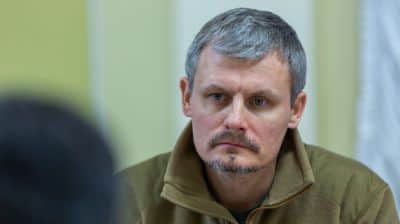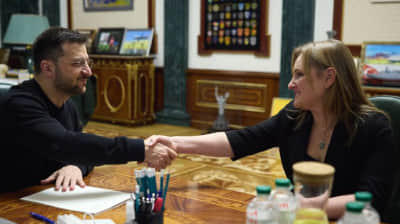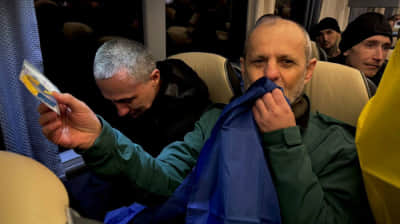New EU sanctions against Russia: restrictions on modern technology to concern Iranian drone manufacturers
The new European Union sanctions against Russia cover exports worth EUR 11.4 billion and include restrictions on sensitive dual-use technologies and advanced technologies that contribute to Russia's military capabilities and technological advancements.
Source: This was said in the statements of the European Commission and the Council of the EU on the occasion of the approval of sanctions, writes European Pravda.
The restrictions include additional electronic components used in Russian weapons systems [drones, missiles, helicopters, other vehicles], as well as bans on specific rare elements and military thermal imaging devices.
In addition, 96 organisations linked to the Russian military-industrial complex were added to the sanctions list, bringing the total number of military end-users included in the list to 506.
For the first time, seven Iranian organisations that use EU components and provide Russia with military drones used in the attacks on civilian infrastructure in Ukraine are included.
Additional export bans are also imposed on goods that can be easily diverted for use, in particular, in support of Russian military operations.
Among them are heavy trucks that are not yet banned [and spare parts for them], electric generators, binoculars, radars, compasses; structures for tower-type buildings, forklifts; electronics, machine parts, pumps, metal processing equipment; goods used in the aviation industry [turbojet engines].
Today's package of measures imposes a ban on the import of bitumen and related materials such as asphalt, as well as synthetic rubber and technical carbon.
Three Russian banks have been added to the list of entities subject to the freezing of assets and the ban on providing funds and economic resources.
The new package of sanctions also prohibits Russian citizens from joining the management bodies of critical infrastructure companies of EU member states.
Also, Russian citizens and legal entities are prohibited from booking gas storage capacities in the EU [with the exception of LNG].
Today's package imposes new obligations regarding the reporting of assets of the Russian Central Bank. This is especially important in connection with the possible use of state Russian assets to finance the reconstruction of Ukraine after the defeat of Russia.
In addition, aviation operators will have to report non-scheduled flights to their national competent authorities, who will then inform other EU member states.
The EU Council also initiated the process of suspending the broadcasting licences of two more Russian media channels: RT Arabic and Sputnik Arabic.
Earlier, it was informed that 121 individuals and legal entities will be included in the tenth package of EU sanctions against the Russian Federation.
EU countries agreed on the tenth package of sanctions against Russia late on Friday 24 February, exactly one year after the start of a full-scale Russian invasion of Ukraine.
Journalists fight on their own frontline. Support Ukrainska Pravda or become our patron!





